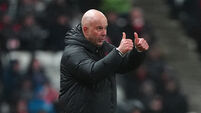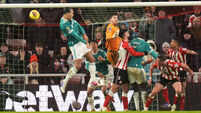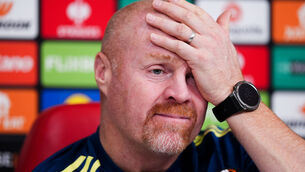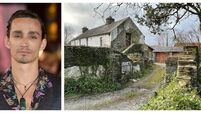How a routine day ended in surrealism, and suffering
I WAS in the office on the afternoon of the crash, another seemingly routine day, until the newswire began to bring sketchy reports of an accident involving the Manchester United team in Munich. The foreign news would come in through Reuters and PA into the wire room. The system was that they had a little hatch between the wire room and the editorial room and, when the boys put the messages through, they would slam the hatch to draw the attention of the messenger boys.
The wire room boys obviously used to read the messages to get an idea of what was happening and on that particular day, I remember them banging the hatch as loudly as they could to alert people that something out of the ordinary was coming through.














